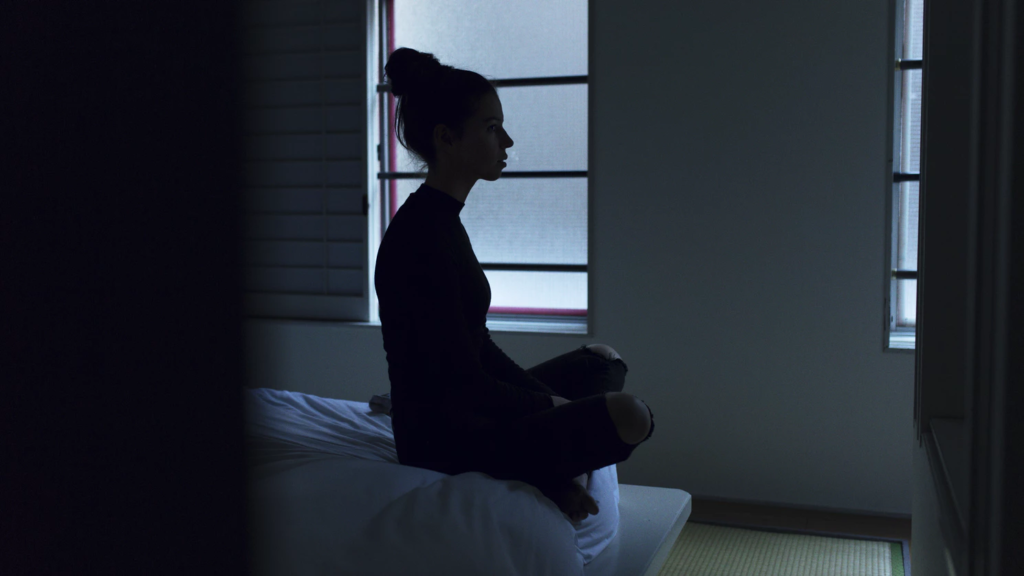BENZODIAZEPINE ADDICTION IN ORANGE COUNTY
Sections: What Are Benzos? | Popular Benzos | Addictive Nature | Causes | Effects | Symptoms | Withdrawal | Symptoms | Getting Help

In the United States, the use of benzodiazepine drugs to get high continues to be a growing concern. By 2013, the rate of overdose death from benzodiazepine drugs in the U.S. was already more than four times greater than it had been 17 years earlier in 1996.1
Yellowstone Recovery aims to reduce these statistics by helping clients break free from benzodiazepine addiction through expert counseling and specialized addiction treatment.
WHAT ARE BENZODIAZEPINES?
Benzodiazepines, colloquially known as “benzos,” are psychoactive drugs that create a calming, sedative effect. They are usually prescribed in short-, intermediate-, or long-acting forms to treat conditions like anxiety, insomnia, seizures, and muscle spasms, but their tranquilizing effects are also easily abused. Though intended to provide relief for legitimate conditions, benzodiazepines can be misused to achieve strong sedation beyond what is medically safe.
Are benzodiazepines addictive? Definitely—and it’s not difficult to fall into addiction. For that reason, prescription benzodiazepine drugs are typically given only as a short-term solution and are not often used for long periods due to concerns about potential health risks and dependency. They also should not be taken at the same time as other depressants (e.g., alcohol and opioid drugs), as the combination can intensify benzodiazepine addiction symptoms and cause serious harm.
POPULAR BENZODIAZEPINE DRUGS
There are a number of benzodiazepine drugs that have become popular for recreational use. The following are examples of some of the most commonly used benzo drugs:
- Xanax: Known generically as alprazolam, this drug is commonly prescribed for anxiety, insomnia, and panic disorders. Xanax has become increasingly popular at parties and festivals, and it is one of today’s most commonly abused and counterfeited benzodiazepine drugs.
- Valium: Known generically as diazepam, this drug is commonly prescribed for anxiety, seizures, muscle spasms, and alcohol withdrawal symptoms (e.g., tremors, delirium, hallucinations).
- Ativan: Known generically as lorazepam, this drug is commonly prescribed for anxiety, insomnia, panic attacks, and seizure disorders.
- Klonopin: Known generically as clonazepam, this drug is commonly prescribed for anxiety, panic disorders, and seizure disorders.
Are benzodiazepines addictive to the same degree? Not necessarily. Benzos with a shorter half-life (e.g., alprazolam) also tend to have a faster onset of action. These characteristics can make them more reinforcing and, thus, potentially more addictive than those with a longer half-life (e.g., diazepam), which are absorbed and eliminated more slowly.
Nonetheless, no benzos should be considered safe for recreational use. It is important to understand that all benzodiazepines are controlled substances in the U.S., and should be used only as directed by a qualified medical professional.
THE ADDICTIVE NATURE OF BENZOS
Benzodiazepine drugs are extremely addictive substances, which is why doctors usually prescribe them in relatively small doses for short-term symptom management. When addiction does take hold, it can quickly send a person into a downward spiral of drug use, withdrawal sickness, doctor shopping, and deterioration.
Because these drugs are intended to help those with real conditions, it can be difficult to convince a loved one that their benzodiazepine use has gone from legitimate treatment to full-blown addiction.

WHY ARE BENZODIAZEPINES ADDICTIVE?
No one chooses to become addicted to benzodiazepines, and quitting isn’t as simple as just using willpower to go “cold turkey.” These powerful substances interrupt the chemistry of the brain, resulting in a genuine physiological dependency.
Benzodiazepines work by boosting GABA in the brain, a chemical that helps control nervous system activity. This increase in GABA activity can indirectly affect the brain’s reward system and make quitting hard, because the brain gets used to the drug’s calming effects. This reliance on benzodiazepines to feel calm can lead to addiction, as the brain starts to require the drug to function normally.
There are additional factors that explain why benzos can be so addictive, such as:
Tolerance Development
With regular use, the body adapts to the presence of benzodiazepines, leading to tolerance. This means that over time, higher doses of the medication are required to achieve the same therapeutic effects, encouraging increased consumption and escalating the risk of dependency.
Physical Dependence
As tolerance builds, the brain begins to rely on benzodiazepines to function normally. This dependence manifests physically, where abrupt cessation or reduction in dosage can lead to withdrawal symptoms. These symptoms can be uncomfortable, distressing, and even life-threatening, which can induce individuals to continue using the drug to avoid them.
Psychological Dependence
The calming and sedative effects of benzodiazepines can also lead to psychological dependence, particularly in individuals with anxiety disorders or difficulty managing stress. Users may start to rely on these medications to cope with daily life, which increases the risk of addiction.
Withdrawal and Reinforcement
The withdrawal symptoms associated with benzodiazepines can create a powerful motivation to continue using the drug to avoid these unpleasant effects. This cycle of relief from withdrawal symptoms reinforces the addictive behavior.
When prescribed, it’s important for healthcare providers to monitor their use closely to minimize the risk of addiction and manage any potential withdrawal symptoms effectively.
THE EFFECTS OF BENZODIAZEPINES ON THE BRAIN AND BODY
Benzodiazepine drugs produce a variety of physical and mental effects, both positive and negative. The exact effects a person will experience vary, based on the type of drug, the dosage, and the physiology of the individual, but there are some commonalities.
Some of the effects of benzodiazepines are positive, which makes the drugs valuable as medical treatments:
- Deep feeling of calm: Relieves anxiety and panic attacks
- Muscle relaxation: Relieves muscle spasms, reduces seizure risk
- Hypnotic state, sleepiness: Beneficial in cases of insomnia
When taken in high doses, however, the effects become dangerous. The following negative effects could be a sign of acute benzodiazepine toxicity or overdose:
- Slurred speech: Indicates loss of normal brain function and language processing
- Weakness: Indicates loss of muscle control
- Poor coordination: Indicates impaired motor function
- Unresponsiveness, coma: Indicates drastic reduction of the central nervous system; may be life-threatening
SYMPTOMS OF A SERIOUS BENZO ADDICTION
A serious, long-term addiction to benzodiazepines is marked by troubling symptoms. If you suspect that a loved one may be struggling with a benzo addiction, watch for telltale signs like the following:
- Chronic insomnia
- Continued or worsening anxiety
- Anorexia
- Severe headaches
- Deterioration of physical appearance
- Difficulty meeting responsibilities
- Loss of ambition/motivation
- New or worsening depression
- Problems at work
- Fighting with friends and family
Constant doctor visits (to obtain more prescription drugs)

WITHDRAWAL FROM BENZODIAZEPINE DRUGS
Going through drug withdrawal can be a harrowing experience, especially when the effects of benzodiazepines have derailed the parts of the brain that regulate comfort and reward. The physical symptoms of withdrawal can even be life-threatening, making it all the more important to safely detox in a professional benzo addiction rehab program.
Possible symptoms of benzodiazepine withdrawal include (but are not limited to) the following:
- Depression, suicidal thoughts
- Anxiety, panic attacks
- Mood swings
- Muscle cramps or spasms
- Nightmares
- Insomnia
- Chest pain
- Elevated blood pressure and/or heart rate
As with the effects of benzodiazepines, the nature and intensity of withdrawal symptoms will vary depending upon the drug being withheld, the average typical dose, and the health of the individual.
HOW MANY PEOPLE ARE ADDICTED TO BENZOS?
It’s impossible to say for certain, but it is known that over 30 million Americans have taken a benzodiazepine within the last year. About 17 percent of the time, these drugs are misused—that is, they are taken in a manner outside their prescribed usage.2 It is not difficult to see how the widespread availability of these kinds of substances contributes to the phenomenon of benzo addiction.
GETTING PROFESSIONAL BENZO ADDICTION TREATMENT
While it may seem to some like recovery from benzodiazepine addiction is as simple as buckling down and deciding to ignore cravings with sheer strength of will, this couldn’t be further from the truth. Not only does benzodiazepine addiction have a strong physiological basis, it also reinforces itself over time and becomes a person’s only means of experiencing reward. Professional benzodiazepine rehab helps such individuals escape dependency and work toward lasting sobriety.

In many cases, clients are still addicted at the start of benzodiazepine addiction treatment. These individuals go through a medically monitored benzo detox period and pursue intensive treatment in a residential program. Clients in residential care live on-site at the facility while they work through their addiction issues through professional counseling and (usually) a 12-step program. Once the chemical addiction has been broken, an individual can begin to rebuild and prepare for a happy, healthy life after treatment.
When searching for benzodiazepine addiction help for yourself or a loved one, you may initially feel overwhelmed with options. First and foremost, your decision should be about treatment quality. Look for a rehab facility with thorough experience, specialized benzodiazepine addiction treatment expertise, and positive client reviews.
THERE IS HOPE FOR A BETTER LIFE AT YELLOWSTONE RECOVERY
If you’ve been living in the shadow of benzodiazepine addiction, it’s time to get the compassionate expert help you deserve. At Yellowstone Recovery in Orange County, CA, we’ve helped thousands of men and women just like you escape the cycle of drug use and return to sober, fulfilling lives.
Concerned about the cost of benzodiazepine addiction treatment? We offer some of the area’s most affordable drug rehab programs without sacrificing quality, comfort, or security. We’ll also set you up with a convenient payment plan so you can focus on getting help without worrying about the financial aspect.
If you’re ready to get started on the road to recovery, call us today at (844) 217-2986.
SOURCES:
- https://ajph.aphapublications.org/doi/full/10.2105/AJPH.2016.303061
- https://www.aafp.org/pubs/afp/issues/2023/0900/benzodiazepine-use-disorder.html
- Treatment Options
- Program Curriculum
- Program Services








